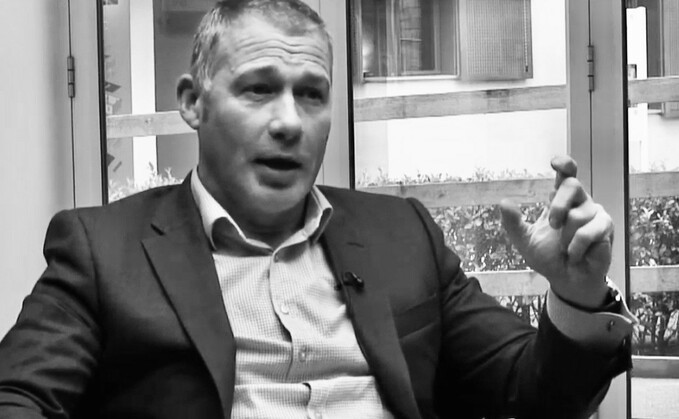
Industry Voice: BSI's Martin Townsend explores ‘greenwashing’ to understand how consumers can become change agents
The role that we all play with regards to sustainability has changed since the 1980s when the phrase ‘greenwashing' was first coined. The term greenwashing is used to define companies that claim to be environmentally conscious for marketing purposes, but who don't make any notable sustainability efforts.
Many consumers have become change agents for businesses because they are more connected, more informed, more curious and more vocal on topics relating to the environment than ever before. This is particularly relevant with 'Generation Z' (members of society born between 1997-2012 and aged 10-25), who have been reported to only support brands with values that reflect their own and will happily change if these brands disappoint. Similarly, Generation Alpha, the youngest members of today's society, only know of a wireless world and the call for a more sustainable future.
As well as our increasing curiosity to be better informed, another critical factor with regards to sustainability, is that many of the solutions to be more sustainable are now available and affordable. We see changes in many different sectors with more practical and cost-effective solutions around renewables, plant-based diets, battery storage, electric vehicles displacing internal combustion engines, and so much more. Whereas in the past, consumers wanted to be green, but the solution wasn't available, or it was costly or complicated, leaving no choice for change.
We still have a way to go
At a time when consumers are becoming more aware, some companies still take advantage of the growing demand for sustainable products, and some businesses are looking for shortcuts to attract consumers.
Some companies make a conscious effort to greenwash with the intention to mislead society, playing very much to consumers wanting to buy goods and services from environmentally conscious brands. Often, words which are vague, such as eco-friendly, green, organic or even natural, are used without being able to demonstrate how the product or service avoids a negative impact on the environment or society.
Although the curiosity of society and the need for ultra-transparency continues to grow in both momentum and importance, greenwashing won't be eliminated by these drivers alone. Consumers will need to see regulations and controls put in place to know if the term ‘sustainable' is being used correctly. Therefore, consumers are the leading agent of change to spot the truth about how open and transparent a company is in its business practices.
The future state that society is looking to achieve is one where customers trust businesses to do the right thing. Where organisations balance profit with the needs of society and the planet, where employees trust their employers to create an environment that is safe and respectful, open, and transparent. Where governments, regulatory bodies and non-governmental organisations are trusted by citizens to protect their interests. Where people rely upon each other and expect the best from each other, every day.
If companies are to make a shift in greenwashing, the questions which need to be front and centre should be centred around:
- What does sustainability mean for my organisation?
- How do I ensure that I meet the needs and expectations of my customers, shareholders and regulators in implementing sustainability programmes?
- What future regulations, imperatives and expectations will emerge that I may need to be thinking about and planning for?
- Where should I be investing in, in what order and over what time frame to deliver the most impact and best return from our investments?
As we hope to transition to this future state, here are some tips for consumers to become their own ‘agent of change'
1. The role of branding
Considering the various roles within an organisation, the marketing team plays an essential role in the message a company presents to consumers. In this, the words that a company uses are powerful and essential. But be inquisitive and ensure that you pay attention to what a company is saying and if these words are backed up with legitimate actions. In this, don't take a slogan at face value, but do dig into the company's practices and see if they have an ethical supply chain or if there's any other controversy surrounding their actions. As a consumer, there is an ever-increasing choice in the marketplace, so ensure the brand you buy from aligns to your own values and the change you want to see.
2. Look for the best certifications
There are easy shortcuts that can quickly help find false claims. Environmental claims, which are not backed up with independent third-party certification, do require further scrutiny. Here again, words are essential and don't let jargon give you the confidence that a company is doing the right thing, with claims of various percentages of recycled content, without any evidence. Some claims can be truthful but equally worrying, such as CFC free, as it is often claimed, as CFC (chlorofluorocarbons) are banned under the Montreal Protocol, so a company should be doing this anyway.
3. Hiding the trade-off
As companies develop their strategies, they must start somewhere. In this, be mindful if a company claims to be green, but is based on a very narrow set of criteria and does not show its more comprehensive intention. Some brands are now doing the right thing and being open and honest that they haven't solved all their issues, but have a plan in place to. Whilst others are setting a very narrow set of criteria without paying attention to the essential points for their business. Recycled paper is an excellent example to use here, which isn't sustainable just because it originates from a sustainable forest and is harvested sustainably. But the company doesn't consider the paper-making process, the carbon emission in production and transportation, or the chemicals used in the bleaching process.
BSI is fuelled by our mission, neutrality, expertise, and ability to bring the right people together. So that real and measurable change is supported by sharing best practise and standards that create trust between consumers, companies, and governments, fostering innovation and progress, and making the world a better place.
BSI's vision is that organisations will work with us because they want to thrive in a sustainable world, delivering against their business goals and stakeholder obligations. Working in partnership with leading thinkers and practitioners - whether established incumbents or visionary entrepreneurs - governments and regulators, industry bodies, and consumers. So, we stand for trust, integrity, and confidence and not greenwashing.
Martin Townsend is director for the BSI Centre of Excellence for Sustainability.
This article is sponsored by BSI.







